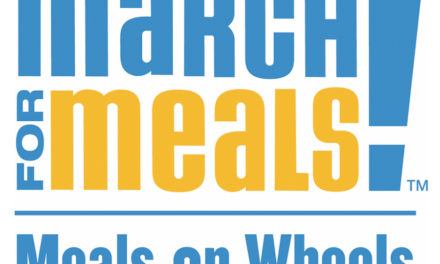Better Business Bureau Warns Consumers to Beware of Puppy Scams this Holiday Season
Few things pull at a person’s heartstrings like an adorable puppy or cuddly kitten. Unfortunately, scammers know this, and our recent uptick in BBB Scam Tracker reports prove it.
So how does this scam work? Often times scammers claim they are breeders. Other times, they act like distraught pet owners who must find a new home for their beloved dog or cat. Either way, once you’ve found these adorable puppies or kittens online, and fallen in love with their pictures and videos, scammers ask you to wire money to make the purchase.
Once the purchase is complete, the “owner” promises your dog or cat will be shipped right away. But there are always “unexpected” problems: The airline requires a specific pet crate, you must pay for an expensive vet visit, or the shipper requires costly pet insurance. With each problem, scammers promise that they will refund the unexpected costs as soon as your pet is delivered. Unfortunately, your dog or cat never existed in the first place.
So, how can you protect yourself from pet scams?
Never wire money to people or companies you don’t know or trust. Once money is wired, it is gone for good. The same goes for pre-paid debit cards or gift cards.
See the pet in person before making a purchase. This is the only sure way of being certain your cat or dog exists and will be delivered to you without fail.
Research prices. Make sure you know roughly how much the specific breed you are interested in costs. If someone is offering a purebred puppy at an extremely reduced price, chances are it’s a fraud.
Check out bbb.org to look up a business, file a complaint, write a customer review, report a scam, read tips, follow us on social media, and more.
Better Business Bureau Offers Tips for Hassle-Free Returns and Exchanges
According to the National Retail Federation, some retailers make their return policies more lenient around the holidays, while others tighten up the parameters to account for an increase in return fraud. In North and South Carolina, the law only requires that a retailer have a return policy and disclose it to shoppers, but it does not dictate the terms of that return policy. “Because there is no standard when it comes to returns and exchanges,” says Tom Bartholomy, President of BBB of Southern Piedmont and Western North Carolina, “it is important that consumers carefully read and understand the policy before even making a purchase.”
Keep your receipts. Keep any purchase receipts and be sure to enclose gift receipts as well.
Understand return policies. Make sure you understand whether you or the recipient of your gift can get a refund, exchange or store credit for unwanted merchandise. Remember that policies for sale or clearance merchandise may be different.
Monitor the return clock. The return window starts the day the gift was purchased, not the day it was received, so know when that window closes.
Don’t remove items from their boxes or remove the tags. Some stores will not accept a return unless the item is in its original packaging.
Ask about return shipping fees. Be aware of additional charges if returning an online purchase.
Check out bbb.org to look up a business, file a complaint, write a customer review, report a scam, read tips, follow us on social media, and more!
Better Business Bureau’s Guide to Gift Cards
As the deadline for gift-buying approaches, many turn to gift cards for the people on their list. According to a holiday shopping survey by National Retail Federation, gift cards are the most popular gift item – 60% of those surveyed want them.
There are two types of gift cards – retail gift cards that can only be used at certain establishments and bank gift cards that function like cash or credit and can be used anywhere. In 2010, the FTC put in place consumer protection measures for gift cards, stating that money on a gift card cannot expire for at least five years. Inactivity fees can be charged only if a card hasn’t be used for at least one year. The expiration date must be clearly disclosed on the card and any fees must be clearly disclosed on the card or its packaging.
While gift cards can be a good “one-size-fits-all” kind of gift, BBB recommends these considerations before making a gift card purchase:
Read the fine print. Search the packaging and the card itself for fees, expiration dates, and terms and conditions.
Buy from trustworthy sources. Buy from sources you know and trust. Avoid online auction sites, as these gift cards may be counterfeit or obtained illegally. Remember that if an establishment goes out of business, the value of the gift card is lost so it’s important to consider the reputation and financial condition of the retailer or restaurant.
Examine the card and packaging for tampering. It is common for thieves to record a card’s PIN and put it back on the shelf. Once the card is bought and activated, they will use the information they have captured to make a purchase online. The safest gift cards are those in thick plastic casing.
Keep the receipt and record the numbers. In the event that the card is lost or stolen, the receipt and numbers will protect the card’s balance.
Check out bbb.org to look up a business, file a complaint, write a customer review, report a scam, read tips, follow us on social media, and more.









